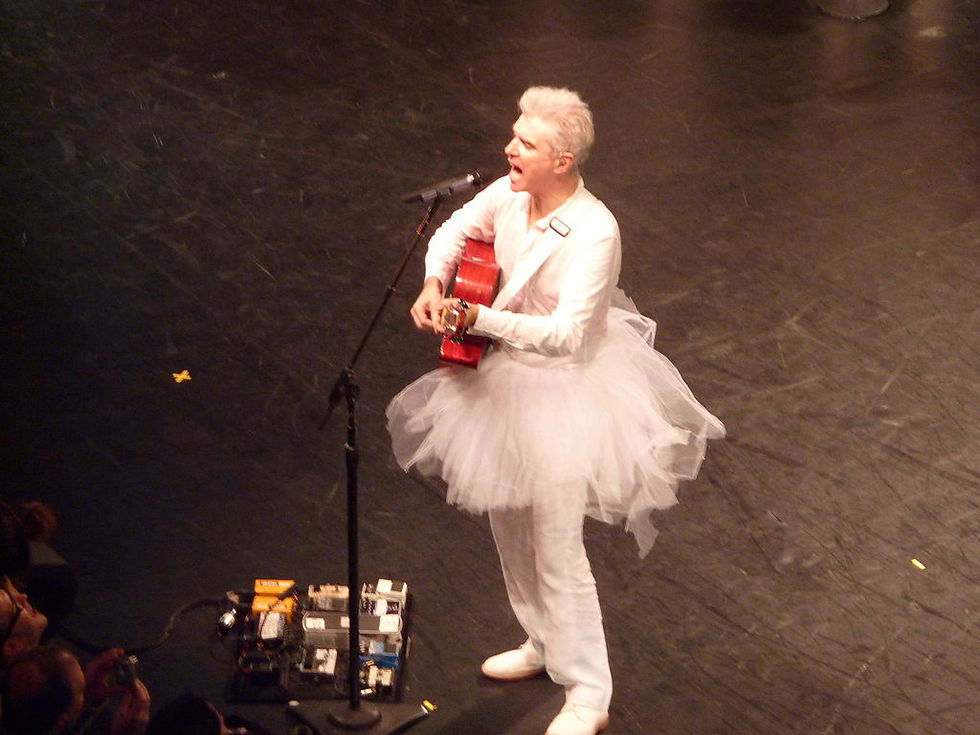David Byrne turns 63 today, and yet he still has one of the most energetic and interesting careers of any musician anywhere in the world. What can younger performers and string players learn from him?

Today is the birthday of one of my musical heroes, David Byrne. Byrne is truly a great musician, whether he's composing funky beats or beautiful melodies, or writing lyrics that manage to be sardonic, poetic and deeply human all at the same time. Since his wilder days in Talking Heads, he has as a solo artist created album after album, each of which sounds different, tapping into completely different musics style while maintaining the archetypal Byrne voice, and collaborating with some of the most interesting music talents around the world. I've been to just about every London gig of his since 2000, the last one a superb pairing with St Vincent.
But he does so much more, in so many different areas. He started his own world music label, Luaka Bop, which has brought some fabulous bands to prominence; he curated a sound installation at the V&A and devised the brilliant 'Playing the Building' which came to the Roundhouse in 2009; and last year he brought his opera 'Here Lies Love' to the National Theatre. When he's on tour he takes his bicycle, using it to discover the places he's staying, and has written a book all about those experiences, Bicycle Diaries. He's written other books, too, including his analysis of the evolution of music, How Music Works. He also writes one of the best blogs in the music business, and has done several TED Talks, including this one, about how architecture and music are intertwined. His curation of Southbank Centre's Meltdown Festival in August promises to be typically eclectic, provocative and unique.
All this represents only a fraction of what Byrne's done over the years. For me, he's one of the few people (Paul McCartney being another) to offer a model for how musicians can be and age in the world, constantly evolving, discovering, improving, collaborating: looking at the world with a childlike curiosity and creativity. Does this model only work in the rock world? I don't think it has to, although on the current evidence it might be possible to think so. Some classical musicians in their 60s might be teaching and playing festivals with younger musicians occasionally, but are any of them continuing to discover and search, to be really curious about the world and involved in so many different art forms? Maybe Byrne is a man ahead of his time, and maybe the younger generations of classical musicians are more in tune with his versalitity – they simply have to be to survive. If that's the case, they need look no further than Byrne as a role model.
Happy birthday, you hip-jiggling, gruff-atonal-singing, cycling-writing-designing-curating genius!
Photo: "DavidByrneFestivalHall2009" by Wonker - originally posted to Flickr as David Byrne. Licensed under CC BY 2.0 via Wikimedia Commons
